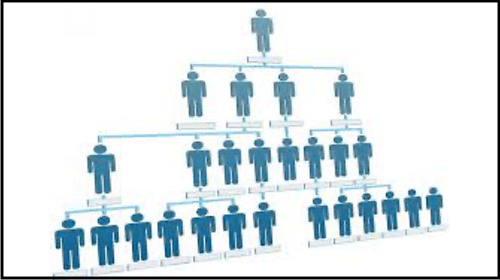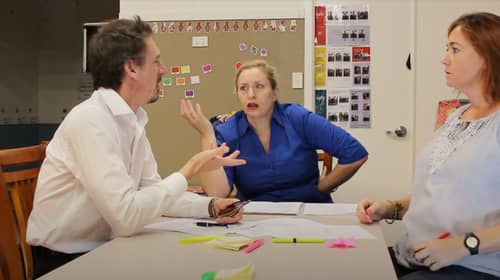Attracting New Committee Members
Authored by:
iClick2Learn Team
‘Click the video titles below to view them’
Transcripts are available under the videos
There will be times between annual general meetings when people leave your committee. You’ll need to replace them with people who have the skills that add value to your committee mix.
There will be times between annual general meetings when people leave your committee. You’ll need to replace them with people who have the skills that add value to your committee mix. You’ll need to be prepared to deal with these changes in a proactive way as casual vacancies on committees is a common situation.
Identifying potential committee members is an ongoing process. In order to maintain a strong committee, there are steps your service will need to take to perform a successful recruitment process. One of the steps is to identify the gaps you need to fill.
The recruitment process should always involve an honest discussion with your current committee members about their intention to continue on your committee or to stop down from their position. From this discussion, you can identify which positions will need to be filled. Document the skills, experience and attributes you are seeking.
Take some time to prepare your committee to promote the position. Make sure that they fully understand the following three things.
Firstly, your committee members need to be familiar with your vision. This will help when sharing what your service is planning.
Second, make sure they’re clear on your mission as well. This will help people understand what you’re trying to achieve and how they can contribute.
The third area is sharing what you have to offer to them. What is different about your service? What’s better or more appealing than others? What value can they receive by joining your committee? The next thing is to give your committee some tools to recruit, such as a position description or an information pack to pass on to their connections and networks.
One key thing to remember that will motivate people is your passion. If your committee can demonstrate passion and satisfaction in their role, this can motivate others to join. And if you can find ways for potential members to use their passion in a role, then this can also motivate them.
– Oh hi John, I was going to call. We really value your business skills on the committee.
– Yeah, I haven’t been on the committee before.
– Well, I’ve really enjoyed it, and it’s really nice understanding what the services plans are for our children.
– I hadn’t thought about it that way.
– Would you like to come to a meeting and meet everyone?
– Sure, sounds great.
– I’ll bring along some information about the service and the committee for you as well.
So how do you find people for your committee? Here are three ways.
The first is, formally advertise the positions vacant in local news papers or online. The second way is through a recruitment consultant, in a paid contractor arrangement or pro bono. And thirdly and this can be the most effective way is, using networks and connections of your current committee members.
Your current committee can be the best advocates. Because they understand your service. They know what’s expected and gain from membership on your committee and they can genuinely talk about their positive experiences.
Using your own networks is great, but it’s also important to search far and wide to attract a diversity of experiences and backgrounds.
Related posts
Starting a Not-for-Profit
Accidental Counsellor
Developing a Fundraising Plan
Create a Sponsorship Plan
How to Develop a Logic Model [Course]
Social Impact
Develop Your Event Plan
Approving Your Budget
5 Tips for effective meetings
Board Assessments and Evaluations: An Introduction
Legal Structures
Organisational Structure
How to Run Your AGM
Governance and Your Organisation
3 Essential Financial Documents
Staying On Top of Your Financials
Informed Decision Making in Your Not-For-Profit
What is a Code of Conduct and Why Do You Need One?
Getting to Know Your Constitution
Governance Risks for Service-Based Organisations
- Tags | Boards and Committees, Roles




















